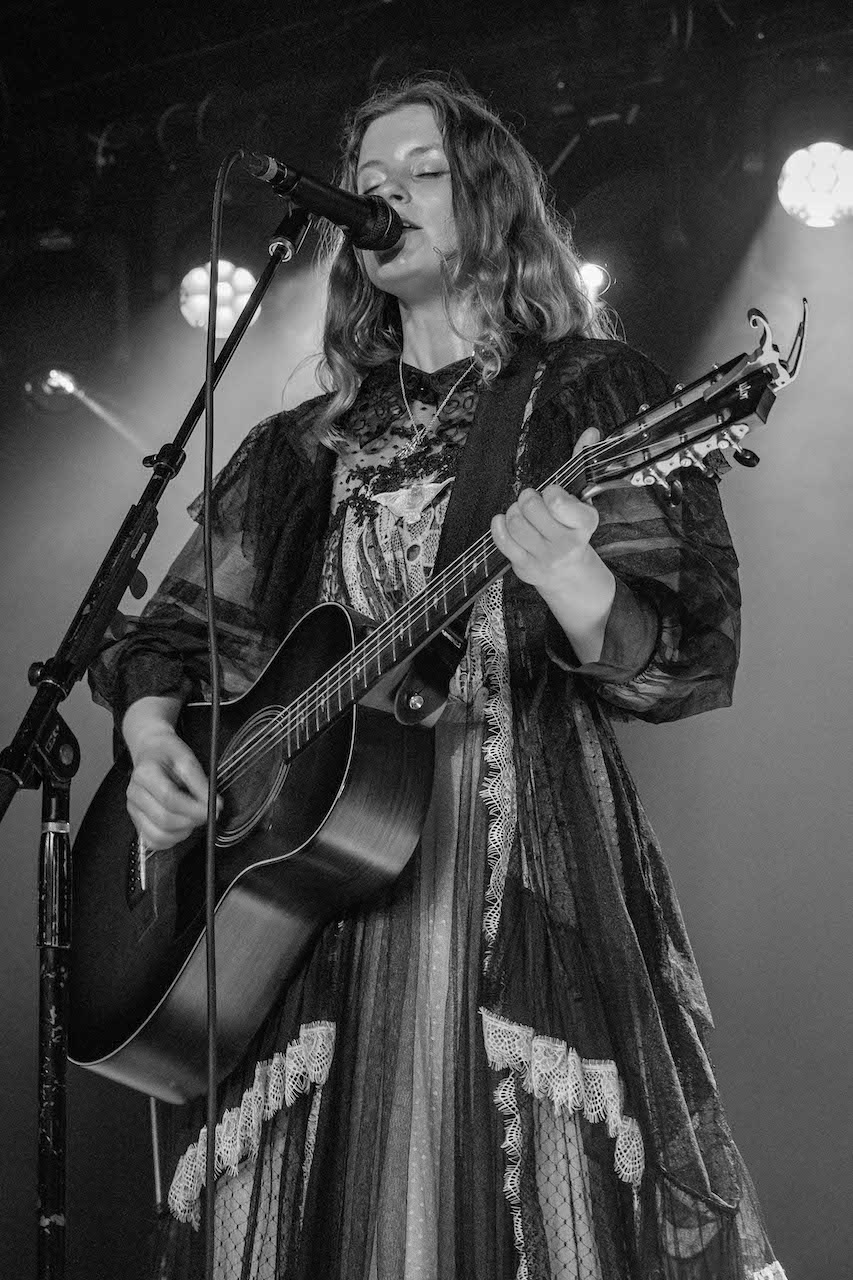










Fairies, nymphs, and pixies came together under a full moon at The Basement East singing the viral hit “boys, bugs, and men” with one of the forefront artists in indie alt folk, Paris Paloma,. The UK born and bred singer has surmounted an expansive international fan base following the viral hit “Labour” and “Yeti”. The alternative folk singer pulls from myth, legend, and fantasy channeling human nature and the lives of women through her incandescent storytelling and unbridled calling to the divine feminine. Resonating with women across the globe, Nashville’s set showed up and sold out months before the artist’s headlining date.
The bass drums signaled the itching crowd of the songstresses’s entrance. Accompanied by only a drummer, Paris took the role of lead guitarist, fully accompanying herself in keeping tradition with the folk genre. Opening her set with “my mind (now)” —which pairs as the first track on her upcoming debut album “Cacophony” — Paris set the mood for a night of introspection and socially conscious calls to action. An outspoken activist of women’s rights, Paris Paloma centers her art and storytelling around the historic and present day issue’s surrounding women of the 21st century. The guitarist, writer, artist, is a fresh find in modern folk music who is making a large space for women in a historically male centric genre. Paris played several unreleased tracks from the album debuting August 30th such as “knitting song” and “the warmth.” These tracks all pull from the female experience or pay homage to generational gaps, traumas, and successes of women.
Ending the night with the song that spiked her following, “Labor”, the crowd became insatiable. The track that inflicted a need for feminine folk music was played to its fullest. The refrain that sent the audience into trance, all chanting “All day everyday, therapist, mother, maid, nymph then a virgin, nurse, then a surgeon, so that he never lifts a finger” was chill inducing. Among an audience of women and members of the LGBTQ+, the live rendition of “Labor” became less of a song with each refrain and more of a call to action against oppression in all its forms.
- Isabella Ellis
Photos Courtesy of Ashlee Riggins (For Bell Music Magazine)










